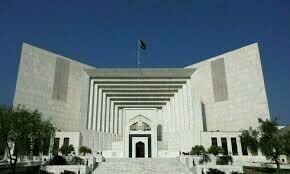WASHINGTON, March 30: The media in Pakistan has emerged as a catalyst for change, educating people and forcing politicians to be more responsible, says a report presented at a seminar in Washington.
“The media is part of the good news and has played a role in political transformation,” said Aasia Riaz, joint director, Pakistan Institute of Legislative Development and Transparency.
In a report presented at a seminar on “political transformations in Pakistan” at the Johns Hopkins School of Advanced International Studies, Ms Riaz noted that during the Musharraf era the private media emerged as a major force in the country.
According to the report, during the 2002 elections, there were only two channels but in 2008, there were more than 40 channels.
“The media has become an important vehicle for projecting political views and agenda with neutrality and objectivity,” Ms Riaz said.
“It has a major influence over the public, particularly housewives, elites and the youths.” The report points out that because of the focus the media brought on the politicians, it was difficult for them to mislead the people.
“The politicians appeared more matured, more responsible; giving new hope for democracy in Pakistan.”
The report notes that in 2002, six judges, including the then Chief Justice, had refused to take oath under the provisional constitutional order. It did not become an issue because the media was not there.
In 2007, during the government-judiciary conflict, the media made the difference and March 9 marked “the beginning of the end for President Musharraf”.
All those who saw the pictures of the Chief Justice being berated by a general in uniform, were deeply concerned, the report adds. “The youths, even from elite institutions like LUMS, came out on the streets to protest.”
The report also notes that the media coverage of the May 12 killings in Karachi, forced the MQM to go on the defensive.
Quoting from a recent survey, the report points out that in Pakistan the media today has 80 per cent approval rating while the judiciary has a 77 per cent approval rating. “Media anchors and hosts have become new celebrities. When they took their banned programmes to the people, thousands came to watch.”
The report also refers to an October 2007 poll by Gallup, showing that President Musharraf’s approval rate had plummeted to 30 per cent from between 70 to 80 per cent in 1999, when he toppled the Sharif government.
The Chief Justice, however, had an 80 per cent approval rate in the October 2007 survey.
In another survey after the emergency, 88 per cent people criticised curbs on the media.














































Dear visitor, the comments section is undergoing an overhaul and will return soon.